Earth's Place in the Universe

Educators and Parents, Sign Up for The Cheat Sheet
Weekly updates to help you use Science News Explores in the learning environment
Thank you for signing up!
There was a problem signing you up.
-
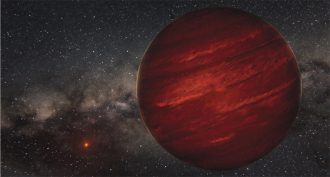 Planets
PlanetsDistant planet may boast the longest year
On a planet far, far away, a single pass around its sun may seem to last forever.
-
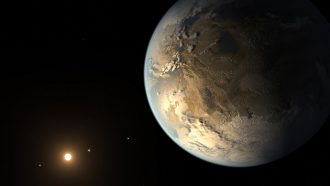 Planets
PlanetsA ‘Goldilocks’ world?
Scientists have spotted a faraway planet that is nearly the size of Earth and could host liquid water. It's too far to visit, but astronomers say the galaxy could be littered with such potentially habitable worlds. Don't hang up yet, E.T.
-
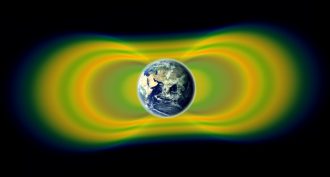 Physics
PhysicsStudent radiation experiment goes to space
The Exploration Design Challenge asked students to design shields that would protect astronauts from radiation. Teachers can still involve classes in the challenge.
-
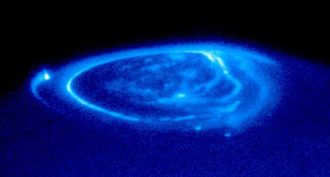 Planets
PlanetsHeavenly research
Groundbreaking research in astronomy landed four high school seniors spots as finalists in the 2014 Intel Science Talent Search.
By Sid Perkins -
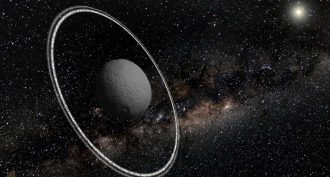 Planets
PlanetsSurprising rings circle comet-asteroid hybrid
It’s too small to be a planet. Yet this planet wannabe still resembles Saturn-like giants. It’s the smallest solar system inhabitant to, like them, host rings of orbiting ice.
-
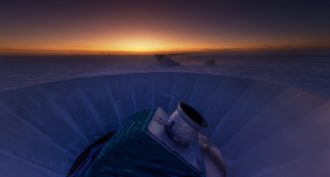 Space
SpaceWaves from the birth of time
Inflation is the idea that in the split-second after the Big Bang, the universe exploded into huge-ness. Although the hypothesis is 30 years old, evidence to confirm it had been lacking. Until now.
-
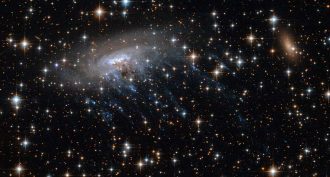 Space
SpaceGalaxy drags trail of newborn stars
Distant galaxy plows through cluster of others, with baby stars in tow
-
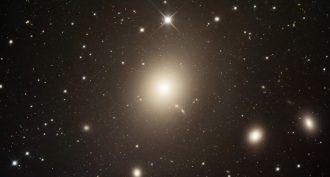 Space
SpaceStar cluster rockets through space
It’s the first time astronomers have ever detected a cluster of stars moving collectively at such speed.
-
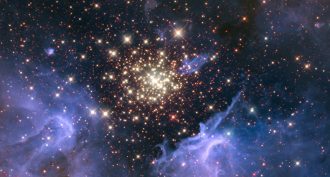 Animals
AnimalsWe are stardust
Everything making up Earth and what’s now living upon it — from trees and people to our pets and their fleas — owes their origins to the elements forged by ancient stars.
By Beth Geiger -
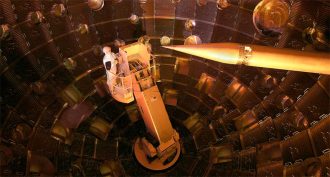 Physics
PhysicsClosing in on fusion energy
Scientists blasted a tiny capsule of hydrogen with laser beams, setting off a reaction that released more energy than in earlier experiments. Still, scientists remain a long way from creating a reaction that releases more energy than it needs to get started.
-
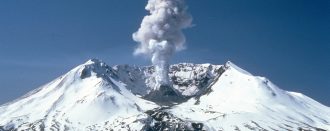 Earth
EarthHow Earth’s surface morphs
Partly melted rock acts like grease to help huge masses of the planet’s surface slip up, around and down.
-
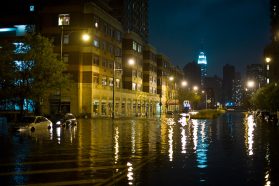 Climate
ClimateWatching our seas rise
Satellites, coral reefs, ancient Roman fishponds and sinking cities help us understand how humans are changing sea level.
By Douglas Fox